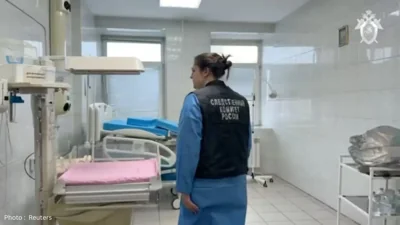
Post by : Anees Nasser
The world students step into today looks nothing like the one from even a few years ago. Courses are changing, industries are evolving faster, job roles are transforming, and employers are looking for adaptable thinkers instead of traditional degree holders alone. In 2026, the pace of change is expected to accelerate even more. This makes preparation not just important, but essential.
Students can no longer rely solely on classroom learning or linear career paths. The education ecosystem itself is shifting — shorter skill cycles, hybrid learning formats, flexible degrees, and industry-linked training are becoming the standard. Meanwhile, the job market is being shaped by automation, digital adoption, climate-linked sectors, global talent competition, and the rise of remote or hybrid opportunities.
Under such conditions, the students who thrive will be those who stay curious, update their skills consistently, and adopt a mindset of long-term resilience. This article breaks down the big changes shaping 2026 and offers clear, actionable strategies that students can use to stay prepared.
Educational institutions across India and abroad are redesigning curricula to stay relevant. Traditional lecture-based teaching is giving way to project-based learning, interdisciplinary modules, and real-time industry integration.
Students should expect:
More hands-on assignments
Greater emphasis on problem-solving
Courses that blend technology with core subjects
Flexible credit systems
Frequent evaluation rather than one final exam
These changes require learners to be more active, engaged, and self-driven.
Long-term degrees are still valuable, but skill-specific add-ons are becoming equally important. Micro-credentials, short courses, and targeted certifications allow students to stay updated without committing to lengthy programs.
In 2026, industries are expected to ask for smaller but sharper skill proofs.
Online classes may not dominate like before, but hybrid formats aren’t going away. Colleges are integrating digital platforms for assignments, assessments, lectures, and collaborations.
Students must become comfortable with:
Virtual communication
Online project tools
Self-paced learning modules
Digital submission systems
This blended format demands more discipline and time management.
Companies are shifting their focus from what students have studied to how fast they can learn and how well they can adapt. Continuous learning is becoming a core employability criterion.
Students must demonstrate:
Curiosity
Quick learning
Practical understanding
Ability to adjust to new systems
Employers now assess learning potential as seriously as technical qualifications.
A particular technical skill may be relevant for only two to three years before evolving into something different. This means students must keep updating themselves throughout their careers.
A flexible mindset matters more than memorised knowledge.
Fields are merging. Students will find opportunities in areas that combine:
Tech + Healthcare
Business + Data
Environment + Engineering
Psychology + Management
Design + Digital Media
Being strong in multiple areas gives students a major advantage.
Artificial intelligence isn’t limited to coders anymore. It affects marketing, design, healthcare, manufacturing, finance, and even arts. Students should understand basic concepts, tools, and implications — regardless of their major.
Students don’t need to be statisticians, but they must know how to interpret, understand, and present data. Whether studying media, commerce, or science, data literacy is now universally valuable.
Students must prepare for roles that involve:
Strategy
Creativity
Decision-making
Human interaction
Critical thinking
Jobs requiring purely manual or repetitive work will shrink.
As companies go global, communication skills matter more than ever — clear writing, confident speaking, and professional messaging.
Industries want employees who can analyse situations, handle ambiguity, and develop solutions rather than wait for instructions.
Group projects, societies, and internships help develop the ability to collaborate across cultures and roles — a key requirement for the 2026 job market.
Students who gain internship exposure stand out significantly. Employers rely heavily on internship records to judge readiness.
Apprenticeships and industry partnerships are expected to increase in 2026, giving students deeper skill-building opportunities inside real workplaces.
Freelance work helps students build:
Real client exposure
Early professional networks
A project portfolio
Income alongside education
In many fields, portfolios speak louder than marksheets.
Adaptability is now a hard skill. Students must train their minds to handle change — new tools, new subjects, new expectations.
A combination of:
Domain knowledge
Digital skills
Communication abilities
Problem-solving
…creates a strong, adaptable profile.
Practical work builds confidence. From college projects to self-initiated ones, hands-on experience is the best teacher.
Reading, taking short courses, or practicing new tools weekly keeps students ahead of the curve.
Connecting with seniors, professors, industry mentors, and peers helps students stay aware of trends and opportunities.
Awareness helps students make better course choices, internship decisions, and long-term career plans.
The pressure to perform, compete, and adapt can be overwhelming. Students must build personal strategies:
Relaxation routines
Time planning
Seeking help when needed
Since hybrid learning continues, too much screen exposure can exhaust both mind and body.
Offline friendships, activities, and hobbies are essential to prevent burnout.
Digital education platforms, virtual internships, and online certifications have removed geographical barriers.
New economic policies and decentralised job markets are creating career opportunities outside major metros.
Fields like regional markets, vernacular media, and local entrepreneurship are opening up faster than before.
The future belongs to students who think, not just memorise.
Parents and teachers must help students choose courses that build employability — not only traditional degrees.
Mental health, performance anxiety, and competitive stress are real issues. Guidance and emotional support matter as much as financial support.
Preparing for 2026 is not about predicting the future — it is about building the mindset and skillset to thrive in any situation. Students who embrace lifelong learning, stay flexible, build multiple skills, and maintain resilience will not just survive but excel in the fast-changing world of education and work.
The future rewards the adaptable, the curious, and the prepared. With the right approach, every student can find strong footing in this evolving landscape.
Disclaimer:
This article is meant for general informational and educational purposes. It should not be taken as career counselling, psychological advice, or an official forecast. Students should consult qualified academic mentors, counsellors, or career experts before making any major educational or professional decision.










Anders Antonsen Withdraws from India Open Due to Pollution Issues
World No. 3 Anders Antonsen withdraws from the India Open, citing severe air pollution in Delhi, inc

Antoine Semenyo Shines Brightly with Two Goals in Manchester City Debut
Antoine Semenyo impresses by scoring in his first two matches for Manchester City, aiding their vict

IOC and BPCL Uncover Significant Oil Finds in Abu Dhabi, Enhancing India's Energy Strategy
IOC and BPCL's UBPL has made new oil discoveries in Abu Dhabi, reinforcing India's energy security a

Debate in Singapore Parliament on Opposition Leader Pritam Singh's Potential Dismissal
Pritam Singh faces debate in Parliament regarding his removal after being convicted of false testimo

China Imposes Restrictions on Nvidia H200 AI Chip Imports Amid US Tensions
China restricts Nvidia's H200 chips to R&D only, escalating tech purchase controls amid US-China ten

Kim Yo Jong Dismisses South Korea’s Peace Aspirations, Seeks Immediate Apology
Kim Yo Jong rebuffs South Korea’s peace overtures, labeling them impractical, while demanding an apo